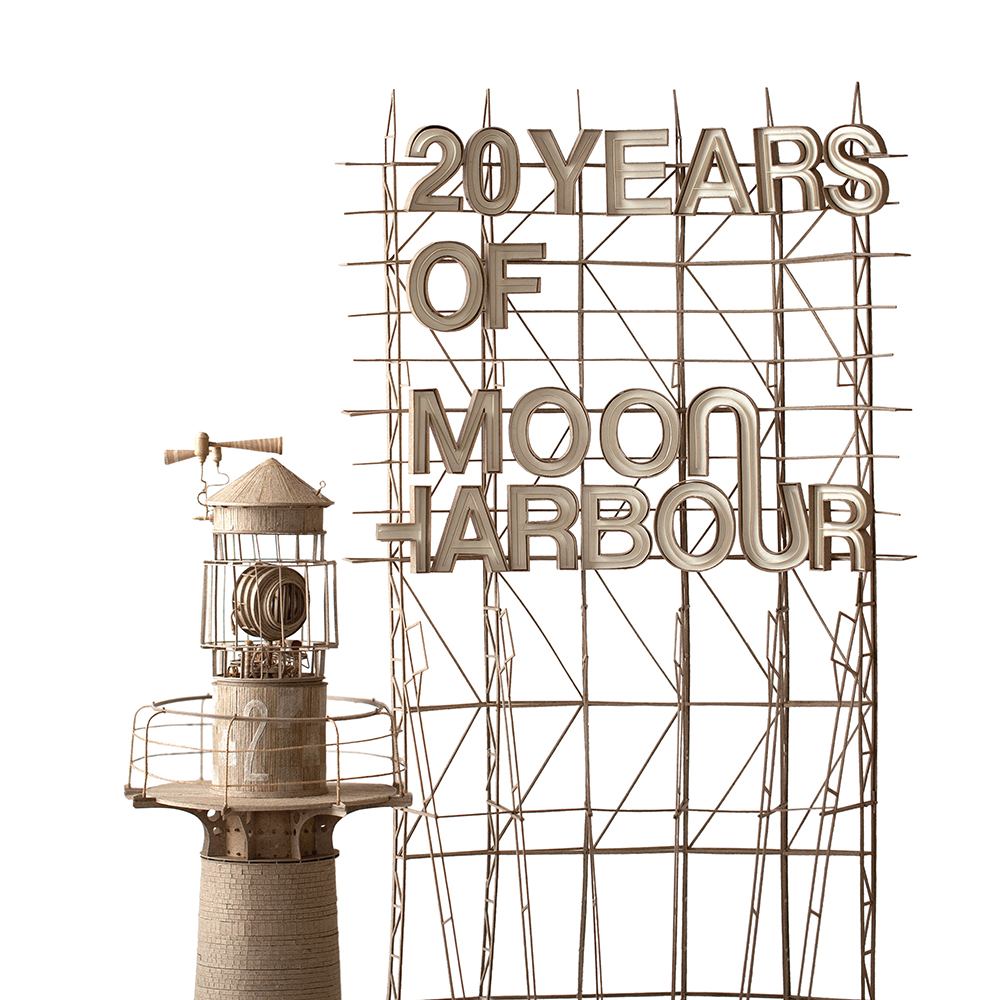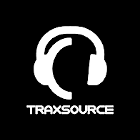Moon Harbour marks its historic 20th anniversary with a 10-track compilation of all new music. It features old friends like Marlow and Luna City Express, icons like Steve Bug and Butch and new signings like Black Circle, so it is a fine representation of the label’s famous sound.
Matthias Tanzmann founded Moon Harbour in 2000, and since then it has been at the forefront of the tech-house scene. Even in the face of the major shift from vinyl to digital, a distributor going bankrupt and the coronavirus pandemic, careful A&R and Matthias’s own productions have ensured the label has remained utterly relevant. The Leipzig label has released countless EPs, LPs and compilations and hosted label showcases all over the world. It has nurtured the careers of artists like Sable Sheep and Ekkohaus and has given a vital platform to new stars like Miane, Detlef and many more.
“Evolution is a natural process and important to artists as well as to labels,” explains Matthias. “Music is always redefined and subject to trends. New generations of musicians want to create their own identities through their sound. As a label, we listen to a lot of new music and try to stay open-minded within our own aesthetic range.”
After a year of re-releasing classics from the label’s back catalogue, the 20 Years of Moon Harbour compilation is all about fresh and exclusive music. It kicks off with Andrea Oliva’s ‘Return To The Dancefloor,’ a bumping cut driven by naughty bass before raw percussive energy from ANEK and tense cosmic melody Black Circle. Butch layers up tribal grooves and exotic vocals, then Luna City Express mark the mid-point with the steamy house of ‘Mami Wata’ featuring Sunru’s soulful vocals.
Marlow throws it back with some old school piano energy on ‘Corktown,’ Matthias nails a perfectly slinky tech house groove on ‘Binford’ and Ninetoes’ ‘Polanco Hills’ ups the pace and drives forwards. Closing out is the punchy and stripped back house of Steve Bug’s ‘Going Up’ and Sven Tasnadi’s loopy and hypnotic ‘Cuckoo.’
This essential collection is further proof that Moon Harbour continues to shape the sound of contemporary European house music. Here’s to the next 20 years.
We spoke with the label founders Matthias Tanzmann and Andre Quaas and Label Manager Daniel Faulwasser about the last 20 years.
- How does it feel to work together so closely for such a long time?
Matthias: It is almost like we grew up together like a family. Maybe we should be adults now after 20 years. But it still feels like we are just doing what we enjoy. - How did it come to such a unique name? What’s the story behind it?
Matthias: It was actually more random than one would expect. André and I were sitting together discussing how to name the label. In a text we had in front of us I saw the two words Moon and Harbour in different sentences. I just put them together because I liked that combination. - What is your intention for making music for Moon Harbour? Do you always try to catch the Moon Harbour sound?
Matthias: The sound of Moon Harbour evolved from Deep House to Minimal and Tech House. I think it is a natural process to undergo developments – especially over such a long period of time. During the process, we always tried to keep our deep roots and references. - What have you discovered in the last 20 Years?
Daniel: Many things changed way faster than we assumed twenty years before. When we started in 2000, the vinyl sales already went down. Then the global crises after 9/11, the decline of the CD format and the record distributors. Free music online through various illegal P2P platforms. Then the triumph of the social media platforms and with larger internet bandwidth came the many new opportunities to get legal downloads and streams. Today we release the new music on demand and worldwide at the same time. Without time delays, independent from shipping services, warehousing and expensive pre-investments.
Many new artists headed to Moon Harbour paired with long-lasting friendships, business-wise and private too.
We are happy to see that massive worldwide support and feedback of what we do, the specific music releases, the label generally and our event showcases. We are very grateful for that.
- How did the scene change and what impact did it have on the label?
Matthias: The music scene is always subject to trends and changes. As a label, you are naturally part of this process. The music the artists send you obviously reflects their own evolution and helps the label to redefine itself. - Is there anything in the past you’d do differently now?
Andre: We had good preconditions with the team and instinctively got some things right. Of course, we couldn’t have known that at the time. And we got the luck that we found good and motivated supporters, employees and partners early on to support us. We also had some projects with a good start and then couldn’t be continued. But we probably wouldn’t have done these things any differently, even in retrospect.
- Do you have any special plans for the next 20 Years?
Matthias: We want to keep doing what we enjoy. And this is making and releasing music. And if we still enjoy that in 20 years time, we will probably do this interview again asking for the next 40 years. - What will the future bring for Moon Harbour?
Daniel: We don’t know that and probably don’t even want to know; we continue to remain curious and open to everything exciting that happens to us. We are of course very aware of the privilege we have to design our own workspace every day and to put our ideas into practice – in a super exciting, open-minded, international creative environment. And we are all the more pleased when we find that what we like to do also reaches many other people and they enjoy it. Both colleagues and music lovers, whether they are already familiar with our music in particular or just want to have a good time with it. - I’m sure that there are millions of Moon Harbour stories you’ve already experienced. What is your favourite one / what is the craziest? What is the most wonderful thing you’ve experienced?
Andre: Firstly, the amazing experiences when we joined such great conference events like Sonar in Barcelona, ADE in Amsterdam, WMC in Miami, BPM in Tulum, IMS Ibiza for the first time, paired with the impression of hearing our music playing at many parties at these festivals.
When Moon Harbour and Matthias Tanzmann were mentioned in the New York Times to underline the quality of the music scene in our hometown Leipzig.
Quite adventurous journeys on behalf of music. And our own branded Moon Harbour showcases event series at places like Berlin, Barcelona, Ibiza, Leipzig.
As mentioned before we met many open-minded, interesting people, which would not have happened to us without running the Moon Harbour label.
And of course, the technological development to create and distribute music nowadays.
Now let’s hear from some of the artists who contributed to the 20 Years of Moon Harbour compilation.
Black Circle
- What is your connection with Moon Harbour?
Matthias and I connected very fast not just because of the music but also because of his cool personality. He became a very good friend of mine and we also played together in Ibiza plus released some cool tracks on his Label.
- Was there a special moment/thing/person that has given you the inspiration to produce your track?
To be honest not really. My production output depends on my mood. Sometimes I like it more melodic and sometimes more banging for the clubs or Festivals. I also don’t follow any rules or Genres. Trying and putting stuff together until you get something you can use that’s my recipe… Totally freestyle 🙂
- Tell us about your first Moon Harbour experience!
Our first release together with Matthias was in 2019 I think and funny as it was we went straight #1 in the Beatport charts. That was a perfect debut on the label I would say.
Sven Tasnadi
- What is your favourite Moon Harbour release (and why)?
I think it’s very difficult to name a favourite in a year-old label catalogue. However, I remember some very strongly. For example Them People from Tanzmann & Stefanik, Bulldozer from Matthias or Upon Burning Skies from Sable Sheep.
- You have started your own label Headfire International. Could you tell us a bit more about it?
I had already run my own label for 5 years together with Daniel Stefanik and Juno6. But at some point, we hadn’t continued this for various reasons. Running my own label on my own kept me thinking for many years. But it was only after years of a mature process that I could imagine that. And so it all happened almost by itself. Now you have to say that I have been releasing my own music since 2007 on well-known labels such as Cocoon, Poker Flat, Defected, Relief, but above all Moon Harbor and Katermukke. For me, starting a label wasn’t just about the musical aspect, i.e. bringing out my own tracks that stylistically don’t match Moon Harbor or Katermukke. But also the possibility of organizing your own label nights in various clubs or festivals as the artist base and network grows.
- Tell us about your first Moon Harbour experience!
My first experience with Moon Harbour is inevitably linked to Matthias and must have been so in 2001 when I saw a photo of him in Groove magazine, above his charts for the month. At that time the label sound was still very much rooted in Classical Deep House and not exactly what I was playing myself back then. However, I already noticed that something very professional was developing, as I should later see on the first posters for the Label Flight Mix series. There were already very well-known artists on them whose tracks were licensed. Sometime later I saw a set by DJ Karotte, where he played the MH12 from Tanzmann & Stefanik, which was currently in promotion, which sounded very different and was very similar to my style. I was very excited about the constant development the label made. Especially from the international perception, I didn’t know that from Leipzig until then. A short time later our shared passion for electronic music led to the fact that I got to know Daniel Stefanik and ultimately also Matthias, André and Dan Drastic through him. A connection that has now existed for 15 years.
Marlow
- Where do you get your inspiration for producing music?
I’ve been collecting records since the early ‘90s. It started with some classic electronic stuff and over the years turned to different styles of music. So my record collection grew and grew and it’s still growing. I like a lot of different music, but over the last few years, there’s been quite a bit of jazz and Brazilian music. In some of my productions, these elements grew more important and became more prominent. For my album, for example, I tried to produce electronic material inspired by all the music I was listening to at the time. I put them all together to create a journey through beats, samples, songs, tunes and styles. It’s not just one style that I like to produce.
A while ago I got asked to do a remake for a project with the pianist Martin Kohlstedt and the Gewandhauschor Leipzig. It was so much fun to cut and mess around with these kinds of samples. As I got more into modular sampling and granular synthesis over time, the rework became more downbeat and sample-driven.
When Matthias asked me for a compilation track I started thinking about what could be a good fit for this project. I decided it would be cool to do a more classic and synth-based track for this 20-year compilation. So Corktown became a tribute to some of the Detroit stuff that has accompanied my musical interests over the last 27 years of DJing. - Since when are you an electronic music producer? Was there a special point where you’ve started your career? You’re also one of the first Moon Harbour Records Acts. Is this related to your starting point in electronic music?
I started to produce electronic music in the late ‘90s. At this point, I had been DJing for a few years and found my style in between all the stuff I really liked at the time. I was in the lucky situation to get lent a Roland Juno 106 synthesizer, a Roland 707 and a little mixer. I bought my first sampler and just started. From the very beginning, it was a learning-by-doing situation. I was trying and learning and as Matthias and André decided to start their own label I was really happy to join. Matthias and I were really into all the deep house of the era. I was really into labels like Svek, Versatile, Large or all the Detroit stuff from Moodyman or Theo Parrish. After I produced a lot of different ideas and loops with no result, my first real track got finished. It became the title track of my first EP on Moon Harbour. - Tell us about your first Moon Harbour experience.
When the new Distillery club opened in 1995, I was resident DJ there and I was also regularly playing in some small clubs around Leipzig. Matthias was often playing at the club “Blauer Pudel” and sometime in the late 90’s we met there and became friends. In 2000 he moved to Weimar to study media design at the Bauhaus-Universität. One year later, I also moved to Weimar to study at the Bauhaus-Universität. At this time Moon Harbour got started. We began to play more often together and Moon Harbour was growing. It was a really great time in the early 2000s.
Anek
- What’s your history with music in general and DJ-ing especially?
From a young age, we bonded over similar music taste and house music especially. It started around 1995 when we discovered the French house compilation by Etienne De Crecy called Super Discount. That just made us both fall in love with electronic music and back then especially with French House. When we were old enough to go out clubbing together, we went to loads of house music parties in Copenhagen, before going on our first trip to Ibiza in 2001, that kind of kick-started our DJ journey, as its here we bought our first vinyl. We both grew up with parents that love all kinds of music and that influenced us both. Sometimes our parents would play louder music than we did in our teenage rooms. Our music history goes way back and we both remember sitting in each other’s bedrooms listening to all sorts of electronic music compilations and sharing that passion.
- Tell us about your first Moon Harbour experience!
Our very first experience with Moon Harbour was in our local record shop called Loud in Copenhagen around 2001. We bought a record from the label, probably after hearing it being played at this amazing midweek party called VeryDisco we used to attend regularly. Since then we have been loving Moon Harbour as it’s just our sound!
- You’re not living in the same city. How do you work together on your releases? Where do you get the idea for a new track?
When we are not able to sit together producing, then we start off tracks separately and send them forth and back. Of course, it’s more fun being together, but it’s actually quite productive working like that. For sure every producer must know the feeling of not knowing how to proceed when creating a track at some point and that’s when it comes in really handy when you send the idea to the other who can listen with fresh ears and come with new input. Especially when you have been working on and listening to the same track for a while, just adding a hihat or a vocal bit you wouldn’t have come up with yourself. Or when you have trouble finishing a track and the other one says it actually sounds finished and we don’t have to add or alter anymore.
Our ideas for tracks usually come when we are out playing gigs or listening to other DJs for example. Hearing a funky bassline or a cool snare drum can give us inspiration. Sometimes we just play around with sounds and loops and we create tracks from what we call happy accidents.
Steve Bug
- The scene has changed in the last few years. Do you see a positive outcome of digitalization within the electronic music scene?
Well, the major positive aspect about music being digital is that it is immediately available for everyone who has an internet connection. So you can reach more people around the world. And it is a lot easier for people to set up a label themselves and get their music out there. Unfortunately, this all led to millions of new releases every day. And with streaming becoming more and more popular it is way harder for young artists and labels to make any money because you have to rely on being featured in playlists etc. But to get featured you have to have a following already, so it will only feed the artists and labels that are popular already.
- You also make music together with Matthias Tanzmann. How did that develop? How long have you known each other?
I first met Mathias at a club where I played with Vincenzo. Matthias handed me over a demo of his project Gamat 3000. A collaboration with Daniel Scholz. On my way back home Vincenzo and I listened to the tape (yes, a cassette tape, that’s how long ago that is ;)) and we really liked what we were hearing, so I decided to sign Gamat 3000 for Dessous Recordings. My former label for Deep House. Over the years our friendship grew and we worked on several releases together.
- Tell us about your first Moon Harbour experience!
My first Moon Harbour experience was when Matthias told me that he will no longer release Gamat 3000 on Dessous anymore because he founded his own imprint – haha. I liked the label from the beginning and have been following it since. Like my label Poker Flat Recordings, it evolved over the years, but it’s still delivering quality tracks. I think my first release on Moon Harbour was for my contribution to the 15th anniversary. The Track was called Lifting The Anker. Followed by collaborations with Matthias, Continue To Love and Resilience, and now another contribution to the 20th anniversary Going Up. Too many years to come, cheers.
Ninetoes
- You are now also a label owner yourself. Where did this development come from?
I think at one point almost every DJ / producer goes that way and starts to create his one circle. Head to toe is mine 🙂
- Are planning anything for the next months?
I will be featured on the 20 years of Moon Harbour compilation with a track called ‘Polanco Hills’ and a new single on my imprint Head To Toe.
- Tell us about your first Moon Harbour experience!
I met Matthias and André in 2014 at DC10 and we became friends. after Matthias asked me for some unreleased music we finally decided to release ‘All Night Long’ – my first MH release in 2016. Since then I’ve released four singles on Moon Harbour +& two tracks on compilations. It’s always great to work with the Moon Harbour crew.
Luna City Express
- Due to the pandemic, the everyday life of a DJ has changed a lot. What was that like for you? What has changed for you personally and can you also find something positive in it all?
Norman: For me personally, a lot has changed, it was as if someone put the handbrake on. Thanks to the government aid we were somehow able to survive. During the summer of last year I played quite a lot under the radar on diverse festivals and in smaller clubs. Since September 2020 I work again as an educator for kids in an after-school care club. That gives me a lot of joy and my creativity has flowed into it a lot. Unfortunately, this causes less time for studio work, which is a real shame. I miss making music a lot. Currently, I’m touring a lot again, which sometimes seduces me into a 7-day week. That’s why I’m planning to work on a shorter-term basis with the kids, as I’m simply a DJ at heart. Generally, I’m very grateful for this long break, as I’ve never spent so much time with my family as in the past 2 years. Everyone experienced this time differently, but overall it was a great opportunity for us! We met a lot of friends and enjoyed life, peace and quiet.
Marco: I had a very similar experience as Norman. This pandemic turned my life completely upside down. I also had to apply for financial support from the government. Since the beginning of 2020, I’m employed by the German Red Cross and work in a vaccination centre. Who would have thought, but I’m very grateful for this special experience. Touring less meant also for me having more quality time with my family which I enjoyed a lot too. Even though studio time became very rare I did not stop being creative. During the lockdown I’ve discovered making music at home, collecting ideas and even finishing them from time to time. Generally, I think that this pandemic was a good time to reflect, step back from the race and enjoy life as much as possible. - You have been artists for many years. Is there anything else you spend your time doing?
Norman: The most important thing for me has always been my family, music and nature – accordingly these pillars are also the elements to which I devote my full attention and time. We don’t waste time on television, radio, newspapers and so on, it gives me the free head to concentrate on the essential things – doing sports, wellness, meditation, being in nature and mainly spending time with my wife and children, gives me the greatest pleasure!Marco: Besides the music, I also spend most of my time with my family. Seeing my daughters growing up makes me very proud. Additionally to that sports has always played an important role in my life. Furthermore, I love photography, cooking at home and reading historical novels. Recently I have discovered my passion for filming and cutting. - Tell us about your first Moon Harbour experience!
Our first Moon Harbour experience was the debut on the label in 2005. The release was called „Fresh“ and turned out to be a very successful start of a long relationship. We released a couple of more EPs as well as our debut album „Hello From Planet Earth“. Touring around the world due to music meant a lot to us. We had such a great and crazy time with the Moon Harbour Gang and we are very grateful for that experience. All the best and happy 20th anniversary Mathias, André, Daniel and the entire team. Much respect and love – Norman and Marco
















